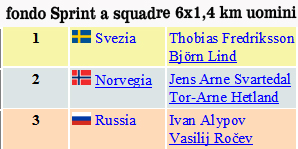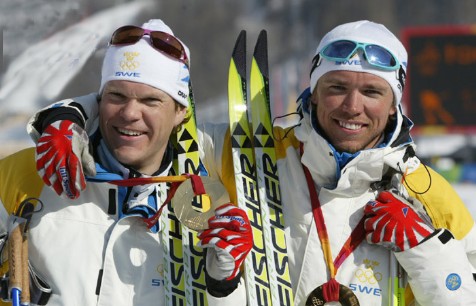Maschile
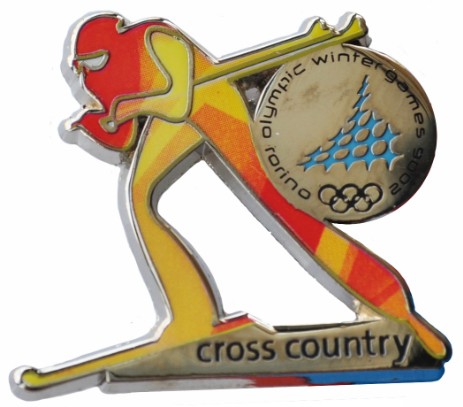
Nello sci di fondo ai XX Giochi olimpici invernali furono disputate dodici gare, sei maschili e sei femminili. Rispetto all'edizione precedente furono introdotte numerose novità nel programma, in gran parte già sperimentate ai Mondiali dell'anno precedente. Furono soppresse la 30 km maschile e la 15 km femminile; per contro, debuttarono due gare sprint a squadre, una maschile (6x1,4 km) e una femminile (6x1,2 km). La 50 km maschile e la 30 km femminile furono a tecnica libera anziché a tecnica classica.

Anche le distanze subirono variazioni. Le gare sprint individuali si disputarono sulla distanza di 1,4 km per gli uomini e di 1,2 km per le donne, anziché 1,5 km per entrambi; la gara a inseguimento maschile divenne 15 km + 15 km anziché 10 km + 10 km, quella femminile 7,5 km + 7,5 km anziché 5 km + 5 km.
SCI DI FONDO: UN TRATTORE D'ORO
È forse l'unico campione della neve ad avere come simbolo del fan club personale un trattore sugli sci. Pare che l'idea nasca da una delle sue passioni dichiarate, le macchine agricole, eredità di un'infanzia trascorsa a Paluzza, nelle montagne della Carnia. Il "trattore" di Giorgio Di Centa sono le gambe d'acciaio che lo hanno spinto al successo nella 50 km, la prova più dura dei Giochi Invernali, davanti al russo Dementiev e all'austriaco Botvinov, ai cospetto di 17.000 appassionati, proprio nell'ultima gara del programma di questa disciplina. Con un seguito speciale: a premiare Giorgio, sul podio, durante la Cerimonia di Chiusura, è stata la sorella Manuela, vincitrice di sette medaglie Olimpiche e ora membro. (dal rapporto ufficiale del C.O.)
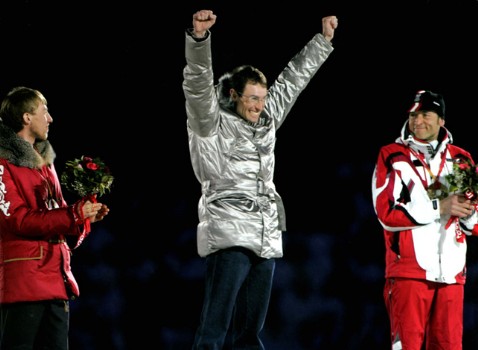

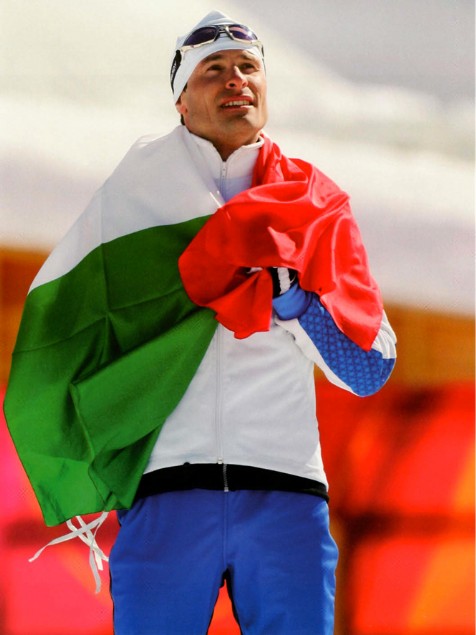
Giorgio Di Centa; this time he seems to be using the Italian Flag to ward off the cold
SCI DI FONDO: GIOCO DI SQUADRA
Alice Valbusa, figlia di Fulvio, uno dei fondisti italiani della staffetta 4x10 km maschile, lo aveva previsto, con un disegno consegnato al padre prima dei Giochi: gradino alto del podio e scettro Olimpico in mano. Sogno di una bambina di 10 anni ma anche felice intuizione: a 37 primavere, Fulvio Valbusa, il veneto della Guardia Forestale è stato uno dei protagonisti del successo italiano, con gli altri "ragazzini" Giorgio Di Centa (33), Pietro Piller Cottrer (31) e Cristian Zorzi (33), i primi due bravi a restare a contatto con il gruppo, gli altri due decisivi nell'affondo su Germania e Svezia, rispettivamente argento e bronzo. Neve e nebbia non congelano la festa. (dal rapporto ufficiale del C.O.)
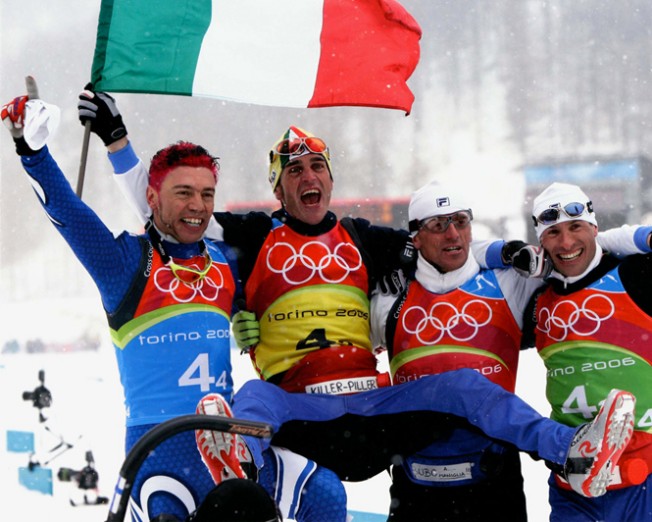
The jubilant Italian cross-country skiing quartet that won gold in the 4x10 km on 19 February ahead of Germany and Sweden: from left, Cristian Zorzi, Pietro Piller Cottrer, Fulvio Valbusa and Giorgio Di Centa
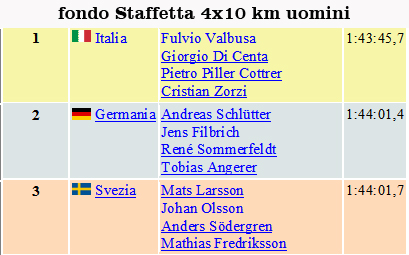
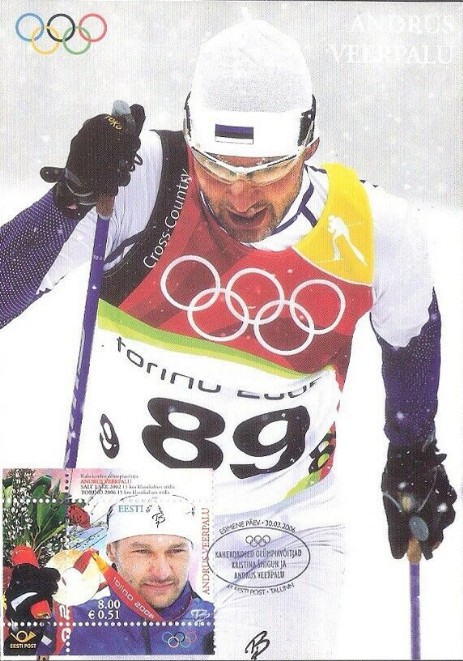
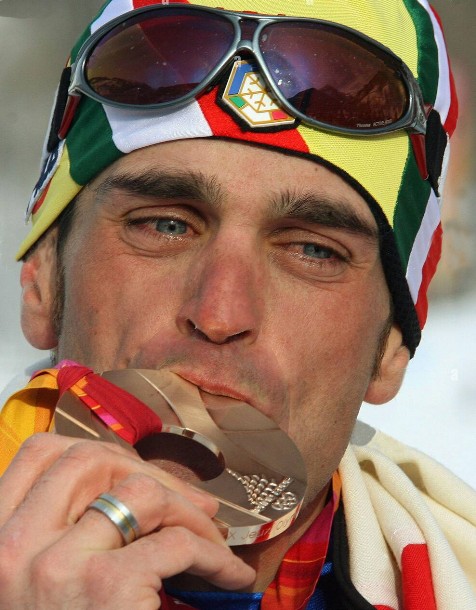



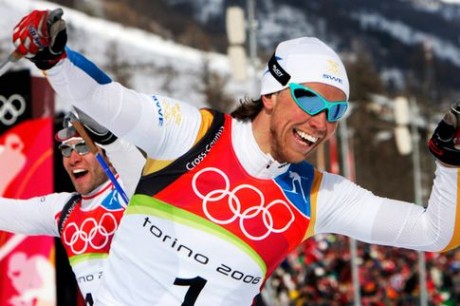
A San Valentino vincono le coppie. Non è uno slogan o, meglio, potrebbe esserlo solo in Svezia, dove il 14 febbraio il paese si è fermato per festeggiare una mattinata d'oro. Quella che, fra le 11.49 e le 12.14, ha visto il successo nello sprint a coppie prima delie ragazze, Anna Dahlberg e Lina Andersson, poi degli uomini, Thobias Fredriksson e Bjoern Lind. Ma a Stoccolma hanno brindato anche per l'oro dello stesso Bjoern Lind nello sprint - davanti all'inatteso francese Darragon - malgrado le polemiche per il discusso contatto tra Fredriksson (bronzo) e l'italiano Zorzi, quarto. (dal rapporto ufficiale del C.O.)
